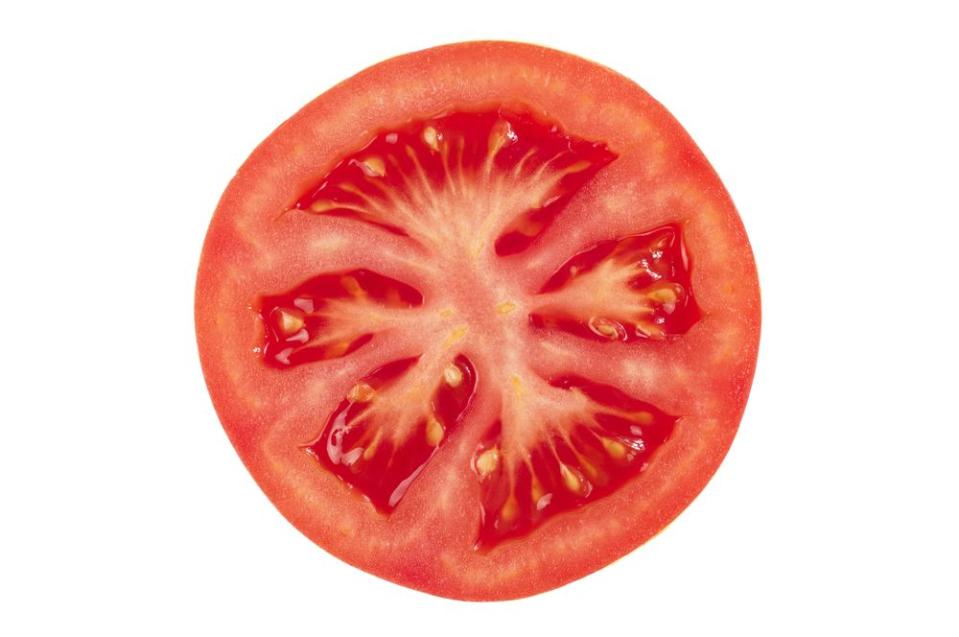Is a Tomato a Fruit or a Vegetable?
Ah, the age old question: “Is a tomato a fruit or a vegetable?” You probably think you know the answer, but do you? As it turns out, it all depends on whether you’re coming from a scientific or culinary standpoint.
Fruit vs. Vegetable
Let’s back up to sixth grade biology: According to Merriam-Webster (because I’m definitely not a botanist), a fruit is the usually edible reproductive body of a seed plant. A vegetable, meanwhile, is a usually herbaceous plant (such as the cabbage, bean, or potato) grown for an edible part that is usually eaten as part of a meal.
In layman’s terms, a fruit contains seeds on the inside and a vegetable doesn’t.
Related: 20 Recipes That Start With a Can of Tomatoes
Technically, a Tomato Is a Fruit

Yes, science nerds, a tomato is technically a fruit. It meets all the botanical criteria for fruits:
Formed from flowers? Check.
Has seeds? Check.
Assists with the plant’s reproductive process? Check.
But is a tomato always considered a fruit? Well...
Legally, a Tomato Is a Vegetable

In 1893, the United States Supreme Court legally declared that tomatoes are vegetables.
The case was a little more complicated than fruits vs. vegetables, though. Here’s what happened: Tomato importer John Nix was forced to pay a 10 percent import tax on vegetables coming in to New York's Port Authority. He argued that tomatoes were technically fruits, so they should not be subject to the tax. The judges disagreed, ruling that in the "common language of the people, whether sellers or consumers of provisions," tomatoes are vegetables.
The reason being, tomatoes are usually treated like vegetables in cooking. Tomatoes are often paired with savory foods like meats, vegetables, and cheeses, and are used in pasta dishes, soups, stews, sauces, and more. While tomatoes can be incorporated into desserts (think tomato sorbet), they’re rarely sweet-tasting.
Nutritionists tend to also ignore the botanical definition in favor of the legal one because tomatoes lack the abundance of fructose (sugar) found in many fruits like oranges and apples, according to Mental Floss.
Tomatoes aren’t the only things in the produce section that toe the line between fruit and veggie: Cucumbers, peppers, peas, and corn are all technically fruits.
Related: Grow Your Best Tomatoes Ever With This Bizarre Gardening Trick
Nevertheless, People Still Can’t Agree
WATCH: How to Make Shortcut Southern Tomato Pie
OK, so we have our botanical definition and our legal/culinary definition. This should be a cut- and-dried issue from now on, right? Absolutely not.
The tomato is the state fruit of Tennessee and the state vegetable in New Jersey. In Arkansas, it’s both the state fruit and vegetable.
We’ll all just have to agree to disagree, I guess.
Tomato Recipes

If you don’t have any particular stakes in the debate—but you just want a good tomato recipe—you’ve come to the right place. Check out some of our favorite tomato recipes of all time:
Roasted Tomato Soup with Cheddar Cheese
Roasted Tomato, Salami, and Mozzarella Pasta
Triple Tomato Salad with Crispy Farro
Find even more tomato recipes here.

